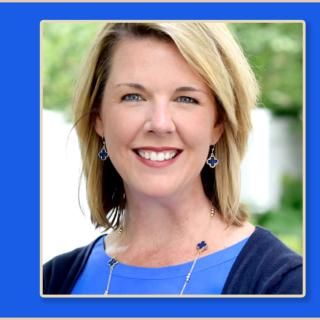Advertisement
Opposition to City Council format and city schools levy growing from the grassroots
Feds called to investigate Columbus Police and legality of at-large City Council
Three groups now opposing school levy hike
The Executive Committee of the Columbus Action Network (CAN), which is the Greater Columbus Chapter of Rev. Al Sharpton’s National Action Network, met in September to assess the defeat of Issue 1, the citizen-initiated ballot proposal to reform Columbus City Council. The group, which had endorsed the issue, discussed how this group, which represents marginalized and minority population of low income and African Americans, could move reform forward in the face of a political and corporate-backed opposition with unmatched money.
CAN President Rev. Joel L. King Jr., first cousin to the late Rev. Dr. Martin Luther King Jr., reminded the group that “everyone remembers the last part of King’s “I Have Been to the Mountaintop” speech in Memphis. But they don’t remember what he said just before that…he said we need to spread the pain. Everybody wants to just ignore that – but one of the last things he was talking about was boycotts of corporations and withholding money – that’s what he was talking about.”
And with that backdrop, the group discussed Columbus City Council, the City Council’s lack of response to proposals submitted by the Columbus Action Network and other community leaders in late 2014 and early 2015 to reform Columbus policing, and the Columbus City Schools levy.
Given the lack of local political responsiveness to residents, the group decided to reach outside of Columbus to the U.S. Department of Justice and request its continued help in addressing the civil rights violations of Columbus police that had been found by the department in 1998 and that continue today. In a letter dated September 30, 2016, the group wrote to the Department of Justice saying “We seek to work with your department pursuant to your authority under The Violent Crime Control and Law Enforcement Act of 1994 (42 U.S.C. § 14141) and such other laws as may be appropriate, to review the practices of the Columbus Division of Police,” citing a 1998 finding by the Department of Justice that “… determined that CDP officers are engaged in a pattern or practice of using excessive force, making false arrests and lodging false charges and conducting illegal searches and seizures.
Our investigation indicates that incidents of police misconduct in Columbus frequently share many common elements. Many of the victims of excessive force, false arrest or charges and/or an improper search are, at the time when the misconduct occurs, carrying out some ordinary, routine daily activity (either not violating the law or committing some minor infraction). “CAN cited recent Columbus police shootings and other acts as evidence that Columbus police continue to violate the civil rights of citizens, and asked for help saying “we believe we have exhausted local efforts seeking to resolve this pattern and practice of poor management and oppressive policing in violation of our federally-protected civil rights.”
Further the CAN letter requested Department of Justice help in pushing the city to move away from the citywide elections that have been found by courts to be in violation of Section 2 of the Voting Rights Act, and thus unlawful, in other parts of the country.
The NAACP Legal Defense and Education Fund (LDF) is the nation’s foremost civil rights law firm. On October 19th, in response to inquiries from supporters of Issue 1 after the August vote, the LDF issued a FAQ sheet about At Large elections geared to Columbus. The FAQ confirms LDF’s position that at large voting can be unlawfully discriminatory because “the votes of voters of color often are drowned out or submerged by the votes of white voters who do not support the candidates preferred by Black voters,” in violation of Section 2 of the Voting Rights Act. The LDF says “widely considered the crown jewel of American democracy, the Voting Rights Act is the most effective tool for protecting voters of color against methods of election – like at-large voting – that weaken the voting strength of communities of color.”
According to the LDF, the release of the FAQ to Columbus signals the LDF's concern about Columbus' legally-suspect at large voting method, and confirms the beginning of the LDF's internal review and consideration of pursuing a voting rights act case against the city. For LDF, the goal is for local communities to self-correct once informed of the issue. This approach to educate first has worked recently, and LDF warns that waiting is risky for localities, saying “without action by local municipalities, politicians who choose to maintain at-large voting can face time-consuming (e.g., two to five years) and costly litigation (e.g., millions of dollars).”
The LDF successfully litigated in Dillard v. Crenshaw County, Alabama, which caused 176 jurisdictions to settle and adopt some form of district voting. In Georgia State Conference of the NAACP v. Fayette County Board of Commissioners, LDF again prevailed to change at large voting for the board of commissioners and board of education. In addition to the costs and divisiveness of litigation and orders to change, a court can provide for federal control and supervision of Columbus elections should the electoral system be found unlawful and the local community unwilling to fix it.
In keeping with the spirit of LDF’s encouragement for localities to self-correct, members of the Columbus Action Network have encouraged the city’s Charter Review Commission to invite the LDF or Department of Justice to testify about the civil rights deficiencies and legal issues related to at-large forms of government as the committee considers recommending changes to Columbus City Council.
Opposition to Issue 57 Columbus City Schools Levy
In keeping with King’s admonition to spread the pain, the Columbus Action Network further resolved to advocate that citizens oppose all levies for new money until longstanding issues related to policing and fair representation have been resolved. Specifically, in November the Columbus Action Network does not support Issue 57, the 6.92 mil new levy designed to raise an additional $62 million per year for the schools. The group agreed at that time to neither support nor oppose continuing levies that do not raise new taxes, such as the COTA replacement levy, but to reconsider this position in the spring to see if more pressure needs to be applied to the political system to enact change.
While the Columbus Action Network says it will not be launching a formal campaign against the school levy due to current time and resource constraints, the group wants citizens to know that it supports a “no” vote until the local political system reforms policing and Columbus City Council. The Columbus Action Network joins a number of other informal groups in opposition, such as Facebook groups called “Keep Your Money Columbus” and “CCS Levy - It’s OK to Vote No.”
Keep Your Money Columbus has recently pointed to the fact that the district has enough money to run at the same level for two more years, and has not considered making cuts before asking for an additional $62 million a year to add over 350 employees despite declining enrollment. Among other things, “It’s OK to Vote No” points to last year’s large increases in the salaries of top Columbus City Schools administrators, including 17 percent and 15 percent increases to the superintendent and treasurer annual salaries as not keeping faith with the levy promise that the 18 percent tax increase is going into the classrooms. Continuing distortions of truth by Columbus City Schools levy marketing materials in a graphic that appears to show an annual increase in 3rdgrade reading competency from 42 percent to 91 percent.
Superintendent Dan Good has said that the district improved third graders reading by 50 percent, when in fact the measurement and graphic compares a 2013 (October) Pre-Test to a 2014 (March) Post-Test. In fact, the Year-to-Year post test scores have remained consistent over the past several years – not making the 50 percent leap the district claims. Further, while the district has touted enrollment gains, Ohio Department of Education published data showing a slight decline in student enrollment from 2015 to 2016. With Columbus City School’s recent history of data scrubbing, the Redflex red light camera bribery and extortion convictions, the Centerplate OSU tickets ethic scandal and the lies and distortions made by the political opposition to the citizen sponsored Issue 1, Columbus electors are waking up to a corrupted political environment and are standing up for change. The Columbus Action Network believes the economic withdrawal of citizens from the Columbus City Schools and other public agency levies seeking new money, along with legal action, are complementary ways to force reform as we push the political and corporate supporters of our discriminatory at large city council elections.
Excerpts from Dr. Martin Luther King Jrs. Speech “I Have Been to the Mountaintop” (April 3, 1968 … in addressing the Memphis trashworker’s strike)
What he said first of substance that we should remember:
“ … Now, if you are not prepared to do that, we do have an agenda that we must follow. And our agenda calls for withdrawing economic support from you. As Jesse Jackson has said, up to now, only the garbage men have been feeling pain; now we must kind of redistribute the pain. We begin the process of building a greater economic base. And at the same time, we are putting pressure where it really hurts. I ask you to follow through here.”
What he said last of spirituality that we are encouraged to remember
“… We've got some difficult days ahead. But it really doesn't matter with me now, because I've been to the mountaintop. And I don't mind.
Like anybody, I would like to live a long life. Longevity has its place. But I'm not concerned about that now. I just want to do God's will. And He's allowed me to go up to the mountain. And I've looked over. And I've seen the Promised Land. I may not get there with you. But I want you to know tonight, that we, as a people, will get to the promised land!
And so I'm happy, tonight.
I'm not worried about anything.
I'm not fearing any man.
Mine eyes have seen the glory of the coming of the Lord.”
Jonathan Beard is the Co-Chair of the Political Awareness Committee of the Columbus Action Network and Co-Chair of Represent Columbus, which sponsored Issue 1.



